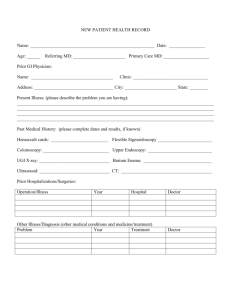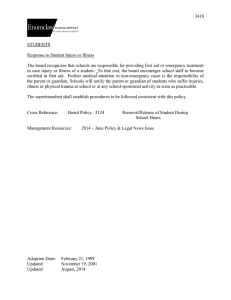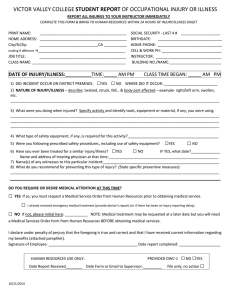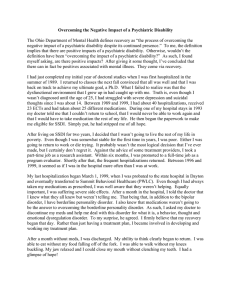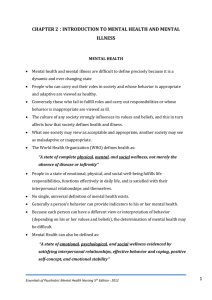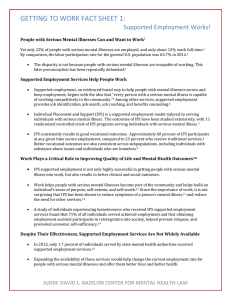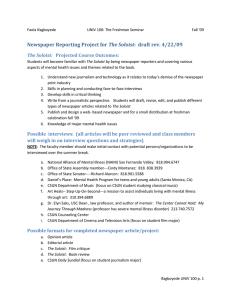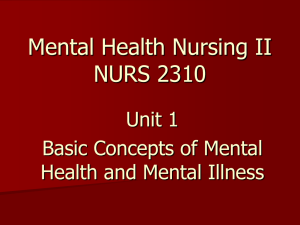Mental Health and Mental Illness Dr. Ali K. Al-Juboori
advertisement
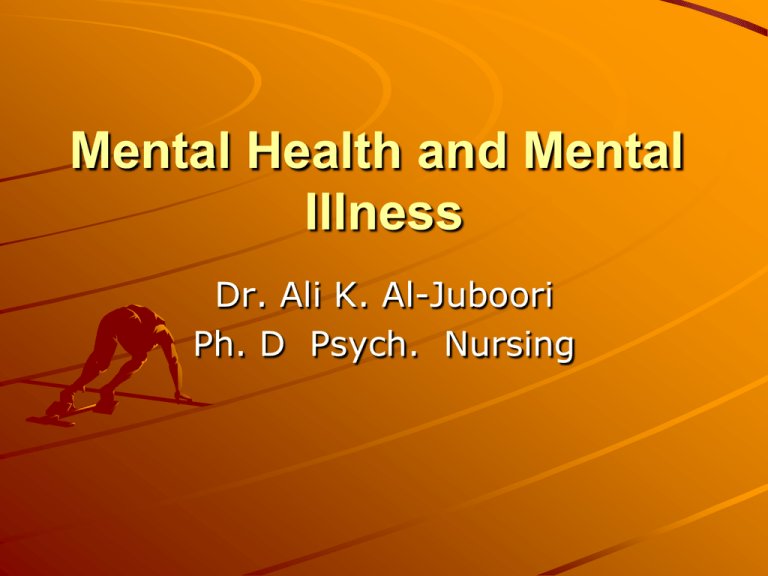
Mental Health and Mental Illness Dr. Ali K. Al-Juboori Ph. D Psych. Nursing MENTAL HEALTH CHRACTRISTICS: Health: is a state of complete physical, mental, social and spiritual well being, and not merely the absence of disease (WHO) . Mental health: is the balance between the development of individual personality and emotional attitudes, which enable a person to live harmoniously as a human beings. The criteria of mental health: 1- Adequate contact with reality. 2- Control of thought. 3- Efficiency in work and play. 4- Social acceptance. 5- positive thinking-concepts. 6- a healthy emotional life. The characteristic of mentally healthy person are: 1- a will – adjusted person has some insight and understanding of his motives, desires, his weaknesses and strong points, he lives in the world of reality. 2- He has a sense of personal worth, feel worthwhile and important. 3- He has a sense of personal security. 4- He solves his problems largely by his initiative and effort. 5- He has a sense of responsibly. The characteristic of mentally healthy person are: 6- He feels that he is wanted and loved. 7- He can give and accept love. 8- He plans a head but dose not fear the future. 9- He dose not evade responsibility or duty. 10- He lives in a world of reality. 11- He shows emotional maturity in his behavior. 12- He can make own decision. Mental illness: Mental illness: it is a disturbance of the relationship between the adaptive capacity of an individual on the one hand and his environment on the other. A mentally sick person is unable to cope with the stress and strain of life. -Any deviation in mental equilibrium will result in mental disorder. -Mind expresses its discomfort through, feeling and behavior . Causative factors of mental illness Genetics Biology Personality Socio-economic status Life events Symptoms of mental illness Change in thinking Change in Mood Change in behavior Inability to function as needed over an extended period of time Role of psychiatric mental health nurses involve 1- Normal nursing roles: Psychiatric assessment Patient and family education Basic psychotherapeutic practice 2- Advanced practice role Psychiatric diagnosis Prescribing single emergency doses Modifying doses of wide ranging psychotropic medication Autonomy in admission and discharge Thank you for listening
